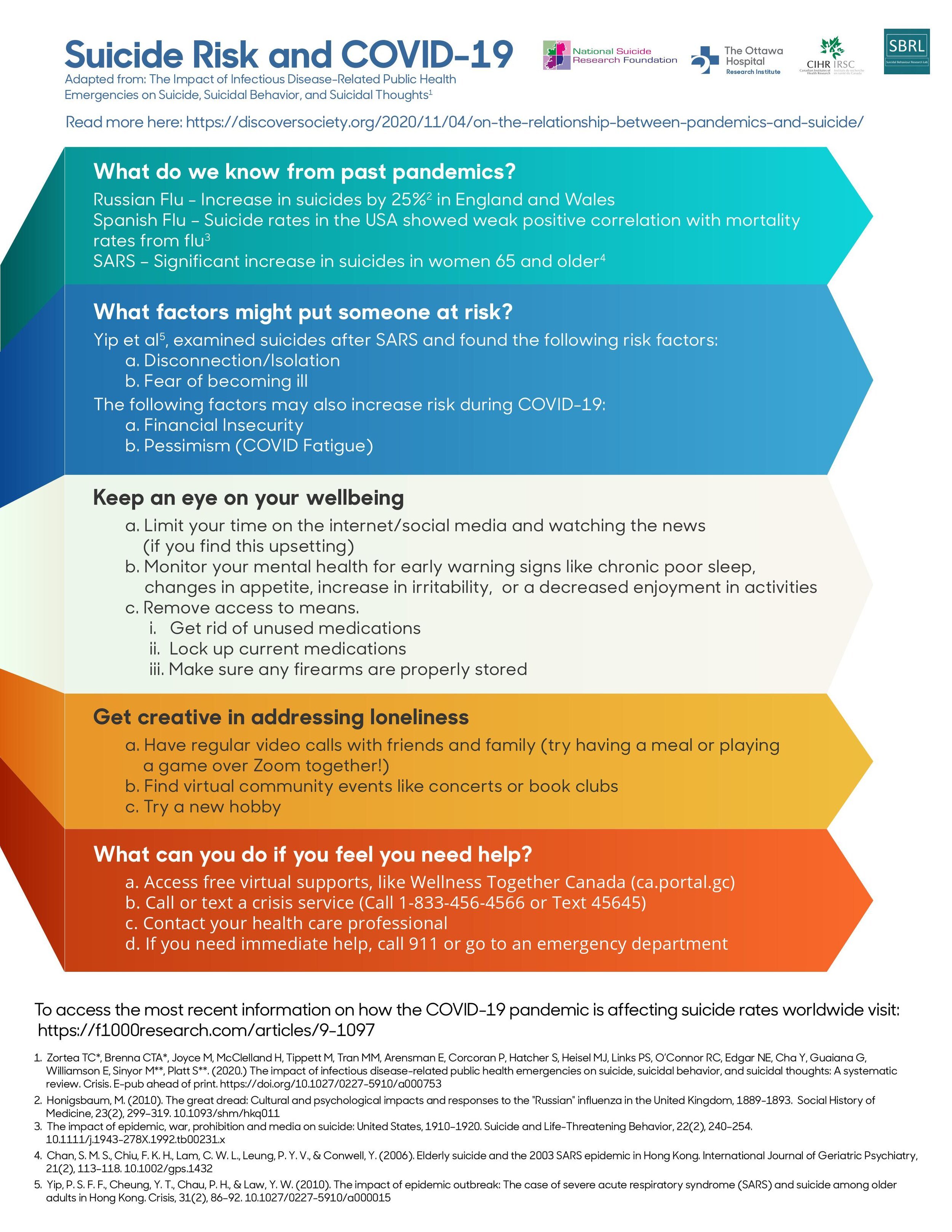The Impact of Infectious Disease-Related Public Health Emergencies on Suicide, Suicidal Behavior, and Suicidal Thoughts: A Systematic Review
By Tiago C. Zortea, Connor T. A. Brenna, Mary Joyce, Heather McClelland, Marisa Tippett, Maxwell M. Tran, Ella Arensman, Paul Corcoran, Simon Hatcher, Marnin J Heisel, Paul S Links, Rory C. O'Connor, Nicole E Edgar, Yevin Cha, Giuseppe Guaiana, Eileen Williamson, Mark Sinyor, and Stephen Platt.
Download the French version of our infographic here!
Public health crises and epidemics, like the COVID-19 pandemic, have the potential of increasing suicide risk in the communities affected. To appropriately respond to these crises, we need high quality research evidence.
We conducted a systematic review of prominent databases to evaluate the current state of research about public health crises and suicide-related outcomes.
In this search, we found a total of eight papers that focused the impact of five specific epidemics on suicide-related outcomes. Specifically, these studies revealed an increase in suicide rates in the year after the SARS epidemic as well as increased suicide attempts in those who had been exposed to both SARS and Ebola. An upcoming study also showed a similar relationship between COVID-19 and suicidal thoughts.
This article highlights a possible relationship between public health emergencies and suicide related outcomes. However, given the low number of studies that were found during our review, more high quality research is needed in this area to inform public health interventions.
To read this article in full, please visit: https://doi.org/10.1027/0227-5910/a000753.
